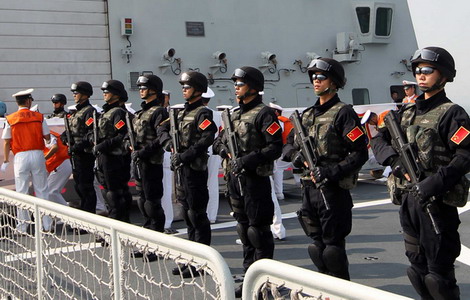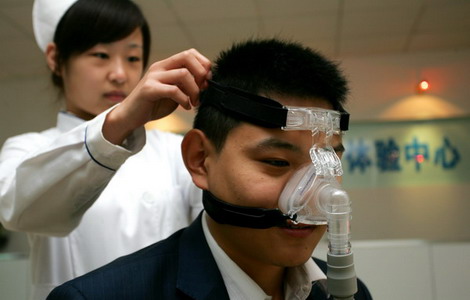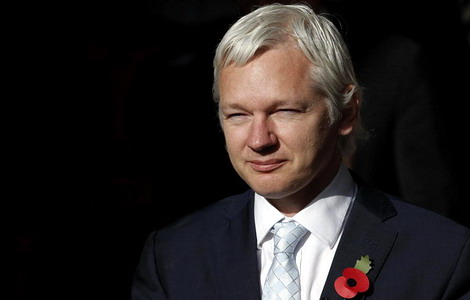Support for small business buffers effects of global downturn
Updated: 2011-11-03 07:59
By Wei Tian (China Daily)
|
|||||||||||
BEIJING - As the world looks at China ahead of the G20 summit in Cannes, France, the country's private sector is going through a hard time.
To deal with the woes, the central government has recently released a series of supportive policies targeting smaller businesses struggling in the swirl of a global downturn and inflation, experts said.
China's private economy is undergoing what might be the toughest time in its 30-year development, said Zhou Dewen, chairman of the Wenzhou Small and Medium-sized Enterprises Development Association.
"The challenges come from both home and overseas," Zhou said, explaining that renminbi appreciation, fewer orders and higher tariffs are squeezing earnings from the global market, while higher labor and material costs are raising expenditures.
Profit margins for export-oriented enterprises in Wenzhou, Zhejiang province, for example, have fallen sharply, going from between 8 to 12 percent in 2008 to less than 3 percent at the moment, he said.
Meanwhile, the prudent monetary policy that has been followed to tackle surging domestic inflation is restricting businesses, especially smaller companies, from getting financial aid.
A survey by the State Council's Development Research Center shows only 5 percent of corporate loans went in 2010 to businesses with credit lines of less than 5 million yuan ($787,000).
At last year's Seoul G20 Summit, Russian President Dmitry Medvedev stressed the vital role small businesses play in global economic stabilization.
| ||||
But in Wenzhou, a hub of China's private economy, the poor performance of the businesses has triggered chain reactions and caused debt defaults in the private lending market and prompted several entrepreneurs who were in debt to flee.
Order was restored after Premier Wen Jiabao visited the city and called for stronger financial support for small businesses.
The China Banking Regulatory Commission on Oct 25 called on banks to offer further help to small businesses, and said the regulator will increase the tolerance for non-performing loans to small businesses.
One week later, the Ministry of Finance announced it will raise the threshold for levying two business taxes in a bid to help lower small companies' tax burdens.
The new policies are likely to direct more credits to smaller businesses, but there is still much more that needs to be done, such as legalizing the private lending market and easing monetary policies, Zhou said.
But Wu Xiaoling, vice-chairwoman of the National People's Congress' Financial and Economic Committee, said the overall credit tightening is not likely to be relaxed in the near future, and a feasible measure should be taken to divert more private capital into the real economy under supervision.
The future credit market should operate on different levels. Large banks should explore the global market, leaving small financial institutions and private lenders to serve community clients, Wu said.
Chen Dongqi, deputy head of the National Development and Reform Commission's macroeconomic research institute, said with investments, consumption and exports all decreasing, government should spend more to boost domestic needs.
"The momentum of China's economic development lies in the enterprises with sufficient profits flows, and in the consumers with enough disposable incomes," Chen said.
"Compared to spending money to save Europe, a better choice would be to spend domestically to stimulate spending and build a social welfare system," he said.
Hot Topics
Libya conflict, Gaddafi, Oil spill, Palace Museum scandal, Inflation, Japan's new PM, Trapped miners, Mooncake tax, Weekly photos, Hurricane Irene
Editor's Picks

|

|

|

|

|

|








